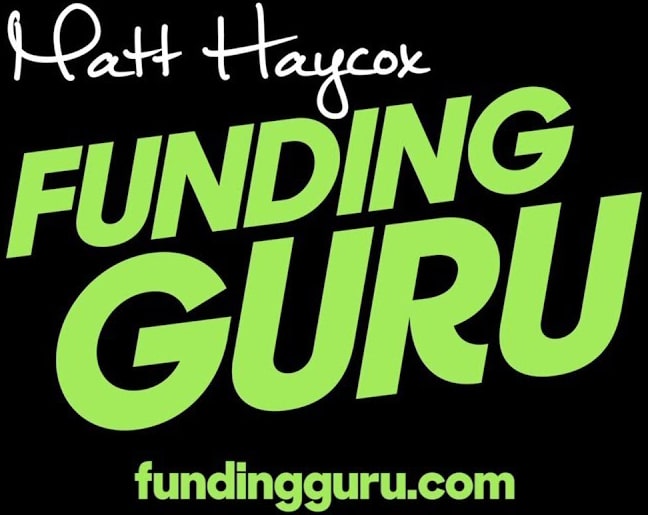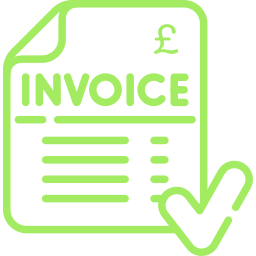Banks are a necessity for business and without them few would be able to survive. But they do have downsides; the length of their decision time and their conservative application criteria. Which means they like to say ‘no’. A lot.
Is a bank business loan the right loan for you?
When you set up your own business or are preparing to expand it, heading to the bank for a bank business loan is often your first financial decision. You will probably look into the possibility of getting either a long or medium-term loan to support your business through the initial stages of planning, budgeting and development.
Limited products – The advantages of taking out a longer-term loan is the repayments will be smaller. However, by taking a longer time to repay it will mean the total interest you pay will also be greater. Depending on the stage your business is at will affect what product you are offered. A start-up will require personal credit history, so the lower your credit score the more chance of being either refused or being offered a product with a higher interest rate.
Some banks offer fixed rate options and others require you to put up collateral as security against the loan. And while banks have some great products, including overdrafts, helping with purchases, credit cards, various well-priced loans (usually secured) and extending terms when you have a late paying client, flexibility isn’t one of their more obvious traits.
Over-reliance on your credit history – Banks are even better when you have good credit, lengthy trading history, plenty of assets and money in the bank. Many companies don’t, and while banks have lending limitations it doesn’t mean you have to be subject to them too.
And even if you do, it doesn’t always guarantee that your loan application will be passed.
Lengthy application time – One of their biggest drawbacks is the time they take to decide on funding when you and your business need a quick answer. If you have time to structure finance then waiting for the credit checks and the paperwork and the pre-decisions then bank processes won’t be of a concern.
But funding is often about dealing with reactive business decisions concerning cash-flow shortages. Can you wait that long for funds?
Funding gaps – For instance there are certain funding gaps in the banks; they can’t offer equity finance, peer-to-peer lending, business angels, mezzanine finance, cash advance or unsecured business loans. Bank business loans aren’t a one-size fits all – although most of the bank’s business loans are similarly packaged – most businesses come in a variety of different shapes and have a similar amount of different needs.
Alternative lenders offer inclusive products
The alternative lending industry has already become a credible and recognisable route of funding, in what has been just a short period of time. Ready access to alternative finance, as opposed to bank business loans, for small businesses as has become a reality for many and there are some key factors as to why this has happened:
Transparency – Products are simple and clear. Business owners don’t have to produce mountains of paperwork or be forced to dance at will for the benefit of the underwriters.
Suitability – Loans come in many different packages and an alternative lender is more likely to have the capacity to offer a product on your terms rather than the banks’. There are fewer redemption penalties and options for short-term loans for cash-flow needs.
Comprehensive – There are loans for every industry. Where some banks will refuse certain industries do to perceived risk associations, alternative lenders look at an individual business plans.
Tie-ins – Some banks only offer particular products to existing customers and might only consider lending if other banking facilities were also taken up. Alternative lenders offer standalone products without any such tie-in requirements.
Underwriting – While banks are still pouring over your accounts from five years ago, alternative lenders have always considered the here and now, along with your business plan for tomorrow, as more important. This includes looking at your reputation, social media footprint and utilising softer data to asses your risk.
The banks have procedures working against you
The banks often take the automated approach to lending and this cautious, qualifying approach only got worse after the banks learned from their own mistakes post 2009.
Their automated approach can often make you think you don’t fit any of their lending criteria. The truth is very few companies actually do. This is one reason why alternative lenders have proven so popular. They look at a wholly different set of criteria to assess the viability of your business.
So it won’t usually be the bank saying no, it will be their computer’s qualifying criteria highlighting some shortcoming in your application.
Should you wait for the bank to say yes?
Sahar Hashemi certainly believes so. She stayed positive through 39 rejections from banks until, on the 40th application, the bank said yes to funding her Coffee Republic business idea. She believes being rejected for a loan is just part of the process for small businesses needing funding.
Yet being able to wait for funding isn’t always a liberty entrepreneurs and business owners have. Opportunities for starting up a new business are often done through time-specific windows – especially for tech companies or anyone who relies on the digital environment being right for success. A long waiting time can make a business idea redundant or result in that space being taken up by a competitor’s product.
Going to the bank when you have bad credit
Bad credit is one of the biggest reasons small and medium sized businesses either avoid going to the banks for a loan or avoid applying for a loan altogether.
Poor credit can certainly get in the way of a successful loan application because it is precisely the criteria in which lenders assess your ability to repay debts. If you have struggled with debts in the past then you are perhaps more likely to do so again in the future.
You can counter this in two ways:
Reduce your perceived risk – Moneywise offers good advice on how to improve your credit score including checking your credit record for errors, updating information, checking for hidden debts, cancelling any old credit accounts and checking to see whose accounts you are linked to.
Seek alternative funding – The truth is banks aren’t always the best option for your situation and there are alternative lenders that can put a different perspective on your business to offer alternative products.
Alternative finance you should try
When you access alternative lenders you are also accessing alternative avenues of funding which can offer quicker cash boosts or be more suitable to your business than a standard bank loan.
Equity Finance – You sell shares to investors without having to make repayments or incur interest charges. Although it means giving up a proportion of your business to an outside investor, you will get access to funding which can accelerate the chances of your business taking off.
Business Angels – We’ve all heard of Dragon’s Den, but this principle is becoming an accepted part of the alternative business funding world. Angels can offer specific business expertise to a company offering funding and commercial acumen in exchange for shareholding within that company.
Peer-to-Peer Loan – Brings borrowers and lenders together. Lenders with money get a better rate from then by having the money in a bank and the borrower also gets a better rate than the bank can offer. Peer-to-peer lending bypasses the traditional role (and control) of the banks.
Mezzanine Finance – Works like a business loan, except where, in the case of failure to make repayments, the lender can convert that debt into equity.
Enterprise Finance Scheme – This government-backed scheme underwrites up to 75% of a loan to SMEs for lending working capital. While some banks aren’t overly keen on this, others are and it is worth enquiring.
How does the bank referral scheme fit in in?
Even the government knows you’ll not be getting a loan from the bank! That’s right, since November of last year The Small Business Enterprise and Employment Act 2015 means the nine leading UK banks now have to refer SMEs to an alternative provider.
Now, no one should be in the position of not being able to access finance. When the banks say no, which they often do, they now have to advise borrowers of other options. And while there are only three designated referral finance platforms, these are sure to grow in number as the scheme gains more traction.
Funding Guru offers a range of small business finance including flexible small business loans. With our expertise and access to a range of funding providers we can help you access a more beneficial loan than the bank business loan you have been turned down for. Our underwriting aims to understand your business better.






















